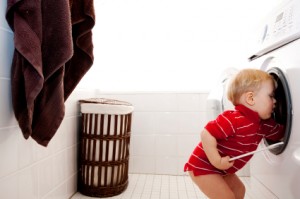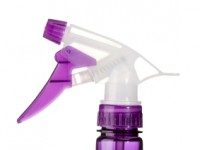

The CBS Early Show did a segment called “Germs Lurking in Your Laundry? This revealed the unsettling results of many washing machines that harbor high levels of bacteria. These include Coliform, a bad bacteria scientists count to determine the level of contamination. Scientists told Susan Koeppen, the consumer correspondent on the show, that contamination levels in some of the washing machines were as high as a dirty diaper. Yikes.
One does wonder sometimes what happens to the bacteria of really dirty loads. You know, the ones mixing dog beds and underwear with cloth napkins. Now we know. It stays, unless the water gets to 180F to kill the germs, which is unlikely. It may be diluted, but there it is. The online article didn’t discuss whether or not the bacteria stays on the clothes (logically, it must), but focused on the dirty washing machines.
While the expose is a good wake up to separate underwear from handkerchiefs when doing the laundry, the show’s recommendation by a microbiologist was to run bleach through a cycle in an empty washing machine every three to four loads.
Using bleach is not a “green” way of killing germs. Breathing in the fumes of cleaners containing a high concentration of chlorine can irritate the lungs. This is particularly dangerous for people suffering from heart conditions or chronic respiratory problems such as asthma or emphysema. The risks are compounded when the cleaners are used in small, poorly ventilated rooms, such as the bathroom. It is also really corrosive. Chlorine was listed as a hazardous air pollutant in the 1990 Clean Air Act. Exposure to chlorine in the workplace is regulated by federal standards.
What to do?
Heinz company spokesperson Michael Mullen references numerous studies to show that a straight 5 percent solution of vinegar—the kind you can buy in the supermarket—kills 99 percent of bacteria, 82 percent of mold, and 80 percent of germs (viruses).
I vote for using 8 cups or so of white distilled vinegar to a full “empty” load in the washing machine every week. While it will be diluted, it should have a strong effect.
It should be noted that vinegar isn’t approved by the Environmental Protection Agency as a disinfectant. If you’d like to choose such a product go for a botanical disinfectant that is based on the powerfully antibacterial essential oil, such as thyme.
By Annie B. Bond, best-selling and award-winning author of five green living books, thousands of blogs, and all the tips in the Greenify Everything app. Called “The Godmother of Green” by Martha Stewart Sirius Radio.




Social comments and analytics for this post…
This post was mentioned on Twitter by greenchicafe: washing machine germs exposed by CBS’S Early Show (yikes) — and green ways to kill http://bit.ly/15hqQy…
Comments are closed.